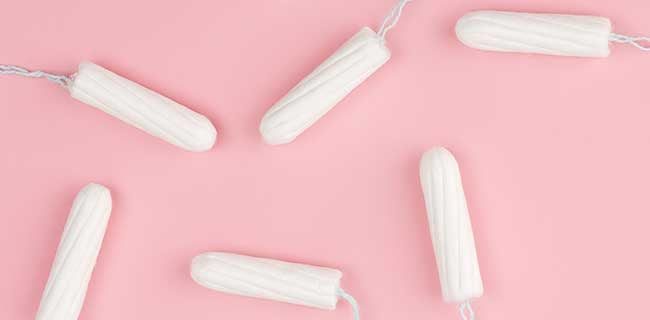
Sep 30, 2020
Blog Life Sciences On Organic Tampons: Market Trends You Need To Know
The saying ‘be more conscious of what you put in your body’ is an important one. But for women, that doesn’t stop at food. Health has been a hot topic thanks to the global pandemic that has occupied the majority of 2020. And while food has taken center stage, it’s not the only area of health that is being reconsidered. A push for organic and natural tampons has been slowly building over the past few years, and the conversation has been accelerated in recent months.
There’s no doubt that there are plenty of advantages to conventional tampons, from individual packaging that allows for easy travel to applicators that are more than helpful. Unfortunately, there are a lot of downsides that come with these shortcuts. For example, many tampons use rayon, which is usually bleached before being added to the tampon. This can lead to chemical poisoning and trigger some vomiting, diarrhea, low blood pressure, dizziness, high fevers and rashes—all from one element.
Additionally, the cotton used when manufacturing conventional tampons requires both chemicals and pesticides. Unfortunately, those chemicals remain in the cotton long after it’s been processed and packaged, which means there is a potential for bacterial infections which can trigger toxic shock syndrome. When you look at the pollutants found in the cotton used, as well as the chemicals used during the manufacturing process, it’s safe to say conventional tampons present many issues.
Not only that, but because conventional tampons are manufactured to have higher absorption than their organic counterparts, it’s easy to ignore the eight-hour limit in favor of not having to take the time to replace it, and to save on funds by using less products. While these reasons make perfect sense, they aren’t doing women any favors in the health department, but rather inciting more concern when it comes to their safety.
Enter organic tampons, which are made with biodegradable material such as organic cotton grown without pesticides and insecticides, plus applicators that are composed of bioplastic material. This allows for a disposal process that’s easier on the environment.
A few companies that are focusing on organic tampons that can hold up against their traditional counterparts include The Honest Co. whose plastic applicator is made up of sustainable plant-based materials. Alongside that, Body Wise, a U.K. company, as well as Seventh Generation, both use biodegradable carboard.
Organic Tampons Trends and Projections
For additional intel into the global market for organic tampons, download a complimentary overview of our report, Global Natural and Organic Tampons Market.
Clara Mouawad is the content writer at BCC Research. She contributes to our blog, social media, email marketing and more.
In today’s fast-paced biomedical world, researchers and pharmaceutical companies...

Radiopharmaceuticals represent a cutting-edge frontier in modern medicine, offer...

Implantable Remote Patient Monitoring (IRPM) devices are revolutionizing healthc...

We are your trusted research partner, providing actionable insights and custom consulting across life sciences, advanced materials, and technology. Allow BCC Research to nurture your smartest business decisions today, tomorrow, and beyond.
Contact UsBCC Research provides objective, unbiased measurement and assessment of market opportunities with detailed market research reports. Our experienced industry analysts assess growth opportunities, market sizing, technologies, applications, supply chains and companies with the singular goal of helping you make informed business decisions, free of noise and hype.